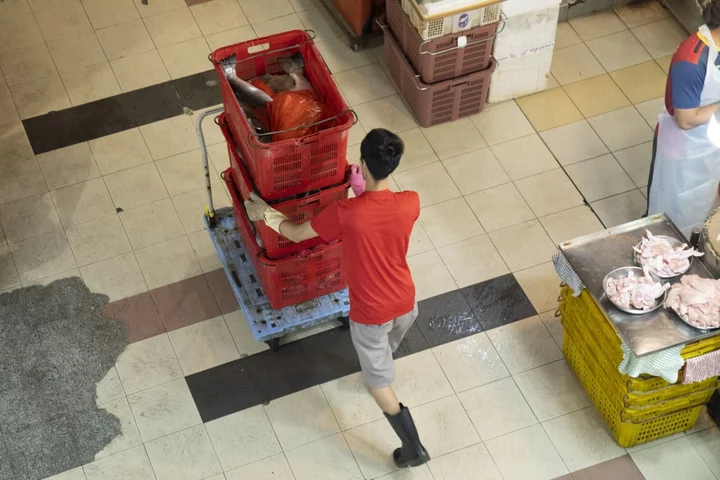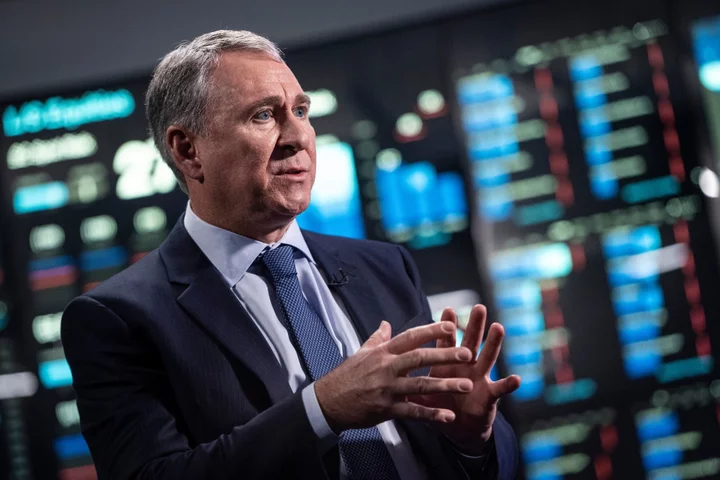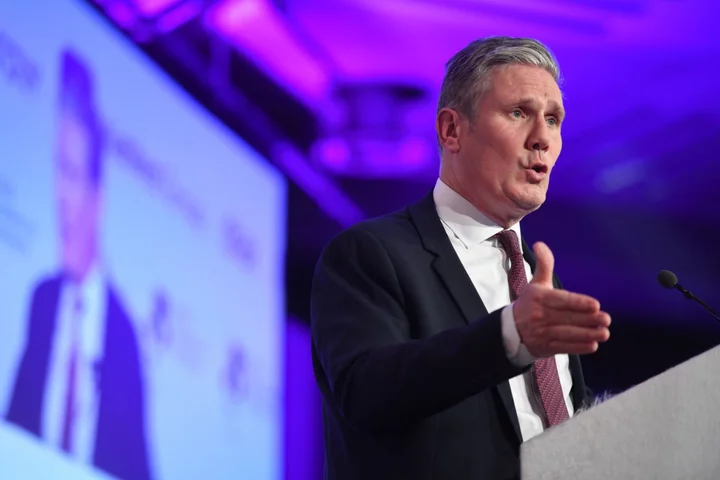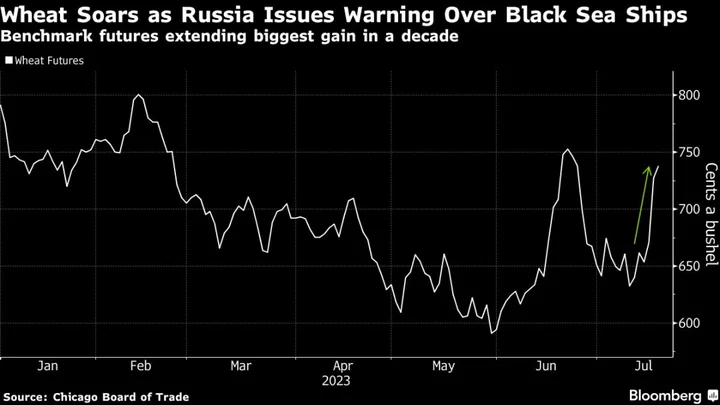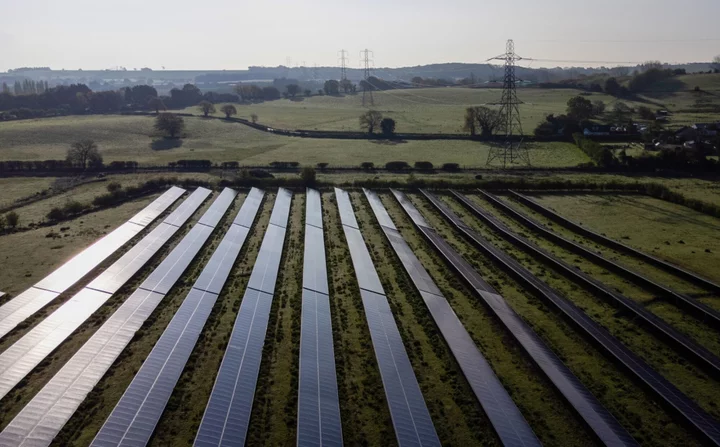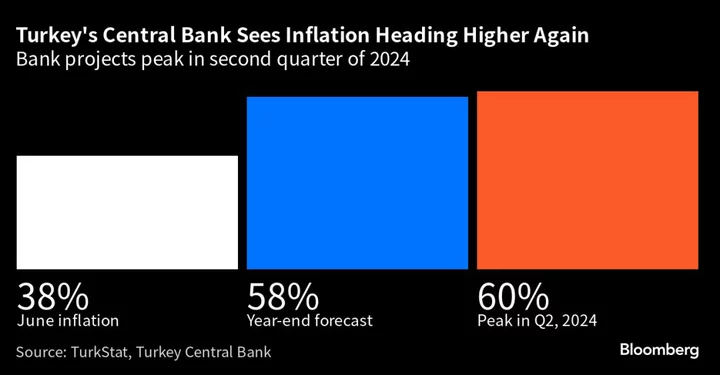While inflation has peaked in Singapore and growth prospects have dimmed, authorities aren’t shifting to pro-growth mode just yet as the battle against persistent price pressures isn’t over, the head of the central bank said.
At the same time, the Monetary Authority of Singapore expects global economic expansion to slow through the end of 2023 as China’s recovery loses steam and monetary policy tightening across the world holds back activity amid a very uncertain landscape.
“A material slowdown in global economic activity in the latter part of the year looks likely,” MAS Managing Director Ravi Menon said at a briefing to coincide with the release of its 2022-23 annual report. The MAS sees global inflation moderating while core prices remain sticky on robust services demand and imbalances in labor markets.
Even as prices have cooled in Singapore after a “proactive and progressive” tightening of monetary policy, the MAS isn’t shifting to “growth-supporting mode,” according to Menon. “The fight against inflation is not over and the monetary policy stance remains tight relative to the business cycle,” he said.
Singapore’s monetary authority incurred a record net loss of S$30.8 billion ($22.8 billion) in fiscal year 2022-23, reflecting the impact of policy tightening to rein in price gains that soared to near a 14-year high. Menon said the loss highlights the challenges faced by policymakers as inflation lingers. Menon said the loss isn’t a cause for concern.
Inflation expectations globally and in Singapore are now “reasonably well-anchored,” he said. The MAS sees core inflation ending the year significantly lower at 2.5%-3%, bringing the average for the full year to 3.5%-4.5%. The all-items price growth should come in at 4.5%-5.5%, lower than a previous forecast of 5.5%-6.5%, Menon said.
The MAS chief pinned global food and energy prices as well as a runup in wage growth since late 2021 as the primary reasons for recent price pressures. He also played down the effect of cash pouring into the city-state.
“Wealth inflows into Singapore have little effect on the exchange rate, domestic inflation, property prices or car prices,” the central bank chief said. There are signs too that property prices have moderated and are stabilizing, he said.
While the global financial system will continue to be tested in the wake of high-profile bank failures earlier this year, for its part, Singapore’s officials say its domestic system “remains sound and resilient” with sufficient buffers. Financial markets will remain challenging in the next two to three years, according to Menon.
The MAS will change the tax incentives for single family offices, Menon said, as the city-state seeks to boost the hiring of locals and spur investment in its equity markets. The monetary authority also set aside about 2% of its equities portfolio or over S$8 billion to a climate transition program, the MAS head said.
China’s “strong post-reopening rebound” in the first quarter will ease over the next few quarters, the MAS projects. Consumer services that have been the driver of the world’s No. 2 economy are unlikely to offset weaker orders from advanced nations, according to the report.
While risks and uncertainty in the global economy have increased, the MAS maintained its forecast for Singapore’s growth this year in a range of 0.5%-2.5%, after posting a 3.6% expansion in 2022. The MAS cited the electronics industry malaise and banking stresses abroad as two factors particularly weighing on the city-state’s economy.
The central bank said its current monetary policy stance remains appropriate, coming after a policy hold in April that followed five consecutive tightening moves that “are still filtering through to the economy and will dampen inflation further.”
--With assistance from Natalie Choy, Low De Wei, Selina Xu, Chanyaporn Chanjaroen, Aradhana Aravindan, Joyce Koh, Sheryl Tian Tong Lee and David Ramli.
(Adds reasons for price pressures in seventh paragraph.)

